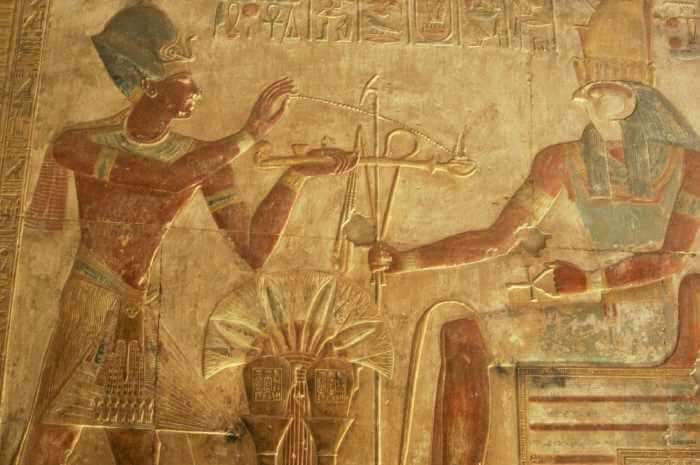Cannabis is a plant that has been a part of human history for thousands of years. This versatile plant has been used for a variety of purposes, including medicinal, spiritual, and recreational. In this article, we’ll explore the fascinating history of cannabis use, from its origins in ancient times to its current legal status around the world.

Ancient Use of Cannabis
Cannabis has been used for its medicinal and spiritual properties for thousands of years, with some evidence suggesting its use dates back as far as 12,000 years ago. Throughout history, different cultures have utilized cannabis in a variety of ways, each adding their own unique touch to its evolution and cultural significance.
Use in Ancient Cultures in Asia
Cannabis has a long history of use in ancient cultures in Asia. Two of the most prominent cultures that utilized cannabis were China and India.
China
The earliest evidence of cannabis use in China dates back to the Yangshao Culture, which existed between 5000 and 3000 BCE. It is believed that the plant was initially used for its fibers, which were utilized to make rope, clothing, and paper. Later, the Chinese began to recognize the medicinal properties of cannabis and began using it to treat a variety of ailments, including gout, rheumatism, and malaria.
Cannabis was also used for spiritual purposes in ancient China, with the Taoist and shamanistic traditions utilizing the plant in their rituals. The Taoist tradition believed that cannabis was a powerful tool for gaining insight into the spiritual realm, and the shamanistic tradition used it as a way to communicate with spirits and gods. Both of these traditions valued the plant for its ability to bring about a state of altered consciousness.
India
In India, cannabis has been used for both medicinal and spiritual purposes for thousands of years. The earliest written reference to the use of cannabis in India is found in the Vedas, which were written between 1500 and 1000 BCE. The Vedas describe cannabis as a plant that possesses both divine and medicinal properties, and it was often used in religious rituals as an offering to the gods.
In India, cannabis was also used for medicinal purposes, with the Ayurvedic tradition utilizing it to treat a variety of conditions, including pain, anxiety, and digestive issues. The plant was considered to have both physical and spiritual healing properties, and it was often used in conjunction with other herbs to create powerful medicinal blends.

Use in Ancient African Cultures
Cannabis was also used in ancient African cultures, particularly in regions such as Ethiopia and Egypt. In ancient Ethiopia, the plant was believed to have spiritual significance and was often used in religious rituals and ceremonies. In ancient Egypt, cannabis was used for medicinal purposes, with the plant being prescribed for a variety of ailments, including inflammation and glaucoma.

Use in Ancient Middle Eastern Cultures
In the ancient Middle East, cannabis was used for both medicinal and spiritual purposes, with the plant being cultivated and utilized in regions such as Persia (modern-day Iran) and the Arabian Peninsula. The ancient Persians used cannabis as a medicinal plant, utilizing it to treat a variety of conditions, including pain, anxiety, and digestive issues. Additionally, the plant was also used for spiritual purposes, with the Sufi tradition using it as a tool for inducing spiritual experiences and connecting with the divine.
Medicinal and Spiritual Purposes of Cannabis in Ancient Times
In many ancient cultures, cannabis was used for both medicinal and spiritual purposes. In China, it was used as a treatment for a variety of ailments, including gout, rheumatism, malaria, and absent-mindedness. In India, it was used in spiritual ceremonies as a sacrament to aid in meditation and to increase spiritual awareness.
The ancient Egyptians used cannabis as a treatment for glaucoma and other eye diseases, as well as for hemorrhoids and inflammation. In the Middle East, it was used for pain relief and as a sleep aid.
In addition to its medicinal uses, cannabis was also often used for spiritual purposes in ancient times. In India, it was considered a sacred plant and was used in religious ceremonies, such as the Hindu festival of Holi. In ancient Africa, it was used in rituals to communicate with the spirits and to promote good health.
Overall, cannabis played an important role in ancient cultures, both for its medicinal properties and for its spiritual significance. While its use has evolved over time, its legacy as a valuable plant with both practical and spiritual applications endures to this day.
Cannabis in Religion

Role of Cannabis in Religious Ceremonies and Rituals
Throughout history, cannabis has played a significant role in various religious ceremonies and rituals. In ancient India, it was considered a sacrament and was used in Hindu religious ceremonies, such as the festival of Holi. During these ceremonies, cannabis was consumed to aid in meditation and to increase spiritual awareness.
In ancient Africa, cannabis was used in rituals to communicate with the spirits and to promote good health. It was also believed to have protective properties and was used to ward off evil spirits.
In the Middle East, the use of cannabis was intertwined with religious practices, particularly in the Sufi tradition. It was believed to bring the user closer to the divine and to increase spiritual insight.
Historical Attitudes Towards Cannabis and Spirituality
Throughout history, there have been varying attitudes towards the use of cannabis in religious practices. In some cultures, such as ancient India, cannabis was revered as a sacred plant and its use was encouraged in religious ceremonies. In others, such as medieval Europe, the use of cannabis was seen as a sin and was banned by the Church.
In modern times, the use of cannabis in religious practices has become a controversial issue, with some religious groups advocating for its legalization and others opposing it. Despite this, its use continues to be an important part of spiritual practices for many people around the world.
Overall, the role of cannabis in religion has been a complex and evolving one, with different attitudes and beliefs about its use in spiritual practices. Whether seen as a sacrament or as a forbidden substance, cannabis has had a lasting impact on religious rituals and ceremonies throughout history.
Medical Use of Cannabis

Emergence of Medical Uses of Cannabis in the Late 19th and Early 20th Centuries
The use of cannabis for medicinal purposes can be traced back to ancient times, but it was not until the late 19th and early 20th centuries that its medical properties began to be widely recognized and studied. At this time, cannabis was widely used in Western medicine for a variety of conditions, including pain relief, nausea, and insomnia.
However, with the rise of the temperance movement and the stigmatization of cannabis as a dangerous drug, its medical uses fell out of favor and were largely forgotten by the medical community.
Revival of Interest in Medical Cannabis in the Mid-20th Century
In the mid-20th century, interest in the medical properties of cannabis was revived, and research into its potential therapeutic benefits began to be conducted once again. During this time, scientists discovered that the active compounds in cannabis, such as tetrahydrocannabinol (THC), had powerful medicinal properties, and that they could be used to treat a range of conditions, including pain, epilepsy, and multiple sclerosis.
Legalization of Medical Cannabis in Some Countries
In recent years, the legalization of medical cannabis has become a growing trend in many countries around the world. In these countries, patients with qualifying medical conditions are able to access cannabis-based medications and therapies, which have been shown to provide relief from a variety of symptoms.
Despite the growing body of evidence supporting the therapeutic benefits of medical cannabis, it remains a highly controversial issue, with some countries and organizations opposing its legalization on the grounds that it is a dangerous and addictive drug.
However, for many patients with chronic and debilitating conditions, medical cannabis represents a lifesaving treatment option, providing them with much-needed relief from their symptoms and a better quality of life.
Overall, the use of cannabis for medicinal purposes has a long and complex history, with a resurgence of interest in recent decades. Whether seen as a valuable treatment option or a dangerous drug, the medical use of cannabis remains a topic of ongoing debate and research.
Recreational Use of Cannabis

History of Recreational Cannabis Use in America
The use of cannabis for recreational purposes has a long and complex history in America. In the early 20th century, cannabis was largely seen as a medicine and was widely used to treat various ailments. However, by the 1930s, the recreational use of cannabis had become more common and was associated with jazz culture and other counter-cultural movements. As a result, anti-cannabis sentiment increased, leading to the eventual criminalization of cannabis in the United States in 1937.
Despite this, the use of cannabis for recreational purposes continued, particularly among certain subcultures. In the 1960s and 1970s, the counter-culture movement of the time embraced cannabis use as a symbol of rebellion against the establishment. This was also a time of increased research into the potential therapeutic benefits of cannabis, leading to a revival of interest in its medicinal uses.
Decriminalization and Legalization of Recreational Cannabis in Some Countries
In recent decades, there has been a growing movement towards the decriminalization and legalization of cannabis for recreational use in some countries. This has been driven by a combination of factors, including increased public awareness of the therapeutic benefits of cannabis, growing social tolerance of recreational drug use, and concerns about the negative effects of the criminalization of cannabis.
In many countries, decriminalization refers to a reduction in the severity of penalties for the possession and use of cannabis, while legalization refers to the removal of criminal penalties altogether. In some countries, such as Canada and a number of states in the US, both medical and recreational use of cannabis is now legal.
This shift in attitudes towards cannabis has had a significant impact on the global cannabis market, which is expected to grow significantly in the coming years as more countries move towards legalization. While there is still much debate about the effects of legalization on public health and safety, many believe that it represents a promising step towards a more rational and compassionate approach to drug policy.










